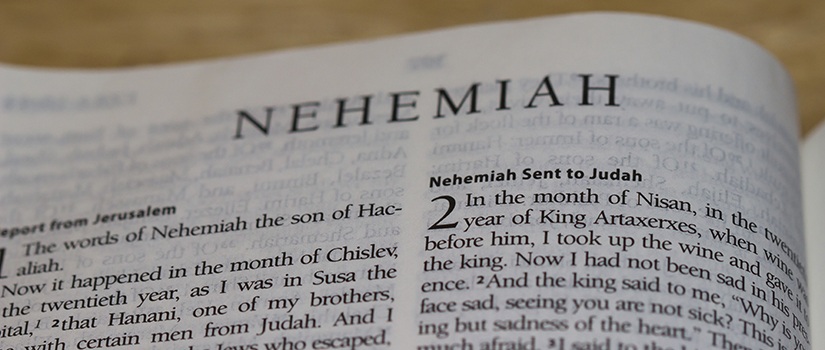The Trial And Death Of Naboth
The Trial Of Naboth:
1 Kings 21:12. They proclaimed a fast and set Naboth on high among the people. (KJV)
The scene is taking place in a village convocation. The elders of Jezreel, the officers, and judges of the village have proclaimed a fast. Their town has incurred the wrath of God, and they must find out and expiate the sin.
Naboth is there. He, no doubt, fears this meeting bodes him no good, he is compelled to attend. He finds himself, to his great surprise, set “At The Head Of The People.”
Sons of Belial Are There
1 Kings 21:13a. And there came in two men, children of Belial, and sat before him: and the men of Belial witnessed against him, even against Naboth, in the presence of the people, saying, Naboth did blaspheme God and the King. … (KJV)
Can we picture the astonishment and pain in Naboth’s face, when there rose up in that assembly two miserable villains who swear that he, Naboth, the humble servant of the Lord, the man who has honestly striven to keep the Law of God, has blasphemed God and the anointed of God?
There seems to have been no difficulty in procuring men so lost to truth and mercy that they would readily swear away the life of a God-fearing citizen. Nor is this to be wondered at when the whole magistracy is sons of Belial, no better than those they suborned. The elders and nobles of Jezreel saw nothing wrong with procuring such men.
What will not some men stoop to for gain? What will they hazard for eternity? And for what a trifle?
No Voice Is Raised:
Naboth thinks, perchance, at the first, that the charge is so utterly reckless and improbable, that none of these, his neighbors, who know him so well, and have known him from his youth up, will believe it for a moment.
No one stood up. Not a voice was raised on his behalf.
One can think of such a trial 900 years later when another “Just Man” (Matthew 27:19) stood, being condemned by false witnesses and only one voice was raised on his behalf.
Then another man “Full Of Faith, and the Holy Ghost,” Stephens, was condemned and stoned to death by a mob (Acts 7:59).
Naboth has no hearing in his defense. He finds that he has not a chance with them, they all steel their faces and hearts against him.
In vain he protests his innocence; In vain he appeals to his blameless life. His cries and those of his wife and children go unheeded. In a moment he is condemned to die the death of a blasphemer.
Naboth Is Stoned To Death:
1 Kings 21:13b. …. Then they carried him forth out of the city, and stoned him with stones, that he died. (KJV)
Naboth is hurried along by a tumultuous crowd with each bearing torches, and passing through the city gate, until they reached the space outside of the city walls into Naboth’s own vineyard (2 Kings 9:25-26).
So suddenly has this thing come upon him that Naboth can hardly realize that they are in earnest. Naboth sees them making preparations for his execution. They are going to stone him on the spot.
“O God In Heaven!” he thinks, “Is it for this I have kept thy law?” “Is this agony and death the reward of mine integrity?” “Is there no power to rescue me out of the jaws of death?” “Has God Forgotten Me?”
It is true that history says nothing of any such thoughts, of any prayers, appeals, entreaties, threatening; but the history is but an outline and that outline is left for us to fill up. We cannot doubt that Naboth had some such thoughts as these, but whatever they were, they were speedily brought to a close.
The witnesses, men of Belial, lay down their clothes at the feet of the elders; they take up stones and rush upon him. As witnesses, they had to cast the first stone to take the principal part in the execution.
At the first blow he quivers from head to foot with a great throb of pain, but blow follows blow; he sinks senseless; the blood streams from his wounds; the life is crushed out of him.
Naboth’s name and the names of his sons (2 Kings 9:26) are added to those on the glory roll of the noble army of martyrs.
It appears from 2 Kings 9:26 that the children of Naboth, who otherwise might have laid a claim to their inheritance, were put to death at the same time, and probably in the same way.
The witnesses share with the elders the guilt of violating the sixth and ninth commandments. But they were “Sons of Belial” to begin with. They are not ministers of God; still less were they ‘The Lord’s Anointed,” and they were but instruments in the hands of others.
The Elders Were The Hand; The Queen The Head.
Naboth Is Dead:
It is clear from (1 Kings 21:19) that the corpses both of Naboth and his children were left to be devoured by dogs. “Then they sent to Jezebel, saying, Naboth is stoned, and is dead” (KJV) (1 Kings 21:14).
The Elders of Jezreel lost no time in sending a dispatch to Samaria to inform Jezebel that they had complied with her orders and Naboth Is Dead. It is significant that this announcement was made to her and not to Ahab.
Let us take another look at the evil wrought by these elders.
There is nothing to relieve the baseness of the Elders and Nobles of Jezreel.
The elders could not plead ignorance. They were behind the scenes and arranged for the trial. It was a murder of the deepest hue. Murder under the guise of zeal for the offended majesty of God.
They had one of the grandest opportunities of shielding an innocent person and rebuking wickedness in high places. They had only to say they could not lend themselves to such a deed, and Jezebel would have possibly been stymied.
But the Elders of Jezreel will not stand alone in judgment; some of the most atrocious crimes in history have been committed in this way. Is there no place today over which “Jezreel” might well be written?
There may be no crime wrought now in this land such as was then done in Israel; but should the time come, these are the men who will do as the Elders and Nobles did then. The spirit is the same, and in like circumstances it will bear the same fruit.
Jezebel Informs Ahab That Naboth Is Dead.
Immediately upon receiving the news from Jezreel, Jezebel wasted no time in telling Ahab that Naboth was dead and the vineyard he craved was his.
1 Kings 21:15. And it came to pass when Jezebel heard that Naboth was stoned, and was dead, that Jezebel said to Ahab, Arise, take possession of the vineyard of Naboth the Jezreelite, which he refused to give thee for money: for Naboth is not alive, but dead. (KJV)
There is bitter, as well as haughty, irony in the words of Jezebel, as if she felt herself, as well as her wishes and commands, above the law, human and divine, and could not be resisted by God or man.
“Take Possession:” The possessions of a person executed for treason were forfeited to the crown. There was no law prescribing this, but it followed the principals of the Mosaic Law.
Just as the goods of the idolater were devoted as belonging to the Lord, so those of the traitor or blasphemer reverted to the king. In both cases, all the sons or heirs were executed along with the guilty one so that there would be no legal claims against the property. (2 Kings 9:26)
It is interesting to note that Jezebel never told Ahab how Naboth died, simply. “Naboth is not alive, but dead.”
Did the king stop to ask how this death had been brought about? Did he know the shameful crime that had been committed in his name, and behind his palace walls?
He must have known something of it, if not all. Even if he thought it prudent to ask no questions, still he would remember Jezebel’s promise of giving him the vineyard. (v.7)
He would have some suspicions of the purpose for which the royal seal was required. And it would be clear to him, even if he did not know the exact circumstances, that somehow Jezebel had masterminded Naboth’s death.
It was clear to him that this vineyard was bought at the price of Naboth’s blood. But he will not let such considerations as these hinder his enjoyment of it. All he thinks of or cares for, is this, that the vineyard is his and he can enter upon it at once.
Possessing The Vineyard:
In this scene we find Ahab joyfully taking possession of the vineyard he coveted, and is walking through it, admiring the trellises which held the fruit of Naboth’s hands, and thinking of the changes which he will make to the grounds.
But now back to the royal palace in Samaria, Ahab is up and refreshed upon hearing that the vineyard is his. He will enter upon it at once. His chariot shall bear him to the vineyard. He will view his new property that day. He will begin his garden of herbs at once.
1 Kings 21:16. And it came to pass when Ahab heard that Naboth was dead, that Ahab rose up to go down to the vineyard of Naboth the Jezreelite, to take possession of it. (KJV)
The royal chariot is ordered out immediately, Ahab is in a happy frame of mind, he mounts the chariot along with his two captains, Jehu and Hidkar (2 Kings 9:25), probably riding in the back part of the chariot, and hurries off to Jezreel. It was apparently on the morning after the murder.(2 Kings 9:25)
The whole ordeal, Ahab coming to Jezreel, and bargaining with Naboth, then riding back to Samaria in disgust, Jezebel dispatching the death warrant, which probably was carried out that night, news came back to Samaria that Naboth was dead, then Ahab riding back to Jezreel, could all have been done in twenty-four hours.









